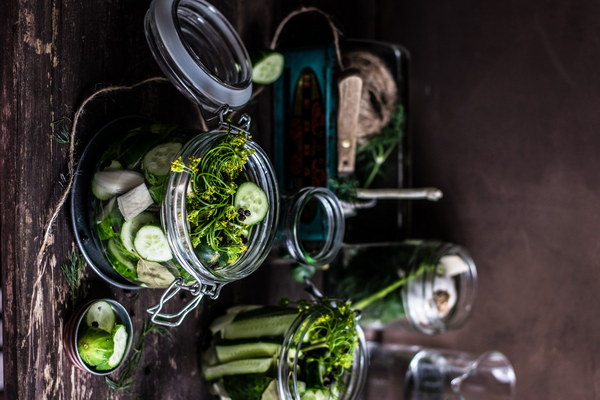Natural Remedies for Lung Detoxification and Nourishment Unveiling the Power of Herbal Medicines
In today's fast-paced world, our lungs are often subjected to various pollutants and irritants, which can lead to respiratory issues and weaken the immune system. To maintain healthy lungs and boost overall well-being, it is crucial to incorporate natural remedies that can both detoxify and nourish the lungs. This article explores the power of herbal medicines that can help in lung detoxification and nourishment.
1. Mullein (Verbascum thapsus)
Mullein, also known as King of the Lung Herbs, is a versatile herb that has been used for centuries to treat respiratory disorders. Its anti-inflammatory and demulcent properties help soothe the respiratory tract and reduce inflammation in the lungs. Mullein can be consumed as a tea or used in steam inhalations to clear the lungs of mucus and promote better breathing.
2. Elderberry (Sambucus nigra)
Elderberry is a powerful natural remedy that has been used to treat colds, flu, and respiratory infections. It possesses potent immune-boosting properties and can help in fighting off lung infections. The berries can be consumed as a syrup or added to smoothies, while the flowers can be used to make tea or tinctures.
3. Licorice Root (Glycyrrhiza uralensis)

Licorice root is a traditional herbal remedy that has been used for thousands of years to treat respiratory conditions. It possesses expectorant and demulcent properties, which help in clearing mucus from the lungs and soothing the respiratory tract. Licorice root can be consumed as a tea or added to other herbal blends.
4. Thyme (Thymus vulgaris)
Thyme is an aromatic herb with potent antibacterial, antiviral, and expectorant properties. It can be used to treat coughs, bronchitis, and other respiratory infections. Thyme can be added to soups, stews, or taken as a tea or tincture for optimal lung health.
5. Marshmallow Root (Althaea officinalis)
Marshmallow root is a natural demulcent that can help soothe the respiratory tract and reduce inflammation in the lungs. It also has expectorant properties, which can help clear mucus and promote better breathing. Marshmallow root can be consumed as a tea or added to smoothies and other recipes.
6. Peppermint (Mentha × piperita)
Peppermint is a refreshing herb that can help in lung detoxification and nourishment. Its expectorant and decongestant properties make it an excellent choice for treating respiratory conditions. Peppermint can be consumed as a tea, added to essential oils for steam inhalations, or used in aromatherapy.
7. Osha (Ligusticum porterii)
Osha is a powerful herbal remedy that has been used by Native American tribes to treat respiratory conditions. It possesses expectorant, antiviral, and antibacterial properties that can help in clearing mucus, reducing inflammation, and fighting off lung infections. Osha can be consumed as a tea or tincture, but it should be used with caution and under the guidance of a healthcare professional.
8. Eucalyptus (Eucalyptus globulus)
Eucalyptus is a popular essential oil that has been used for centuries to treat respiratory conditions. Its expectorant and antiviral properties can help in clearing mucus, reducing inflammation, and fighting off infections. Eucalyptus oil can be inhaled directly or added to a diffuser for steam inhalations.
In conclusion, herbal medicines offer a natural and effective way to detoxify and nourish the lungs. By incorporating these herbal remedies into your daily routine, you can promote better lung health, boost your immune system, and improve overall well-being. Always consult with a healthcare professional before starting any new treatment or herbal regimen.









